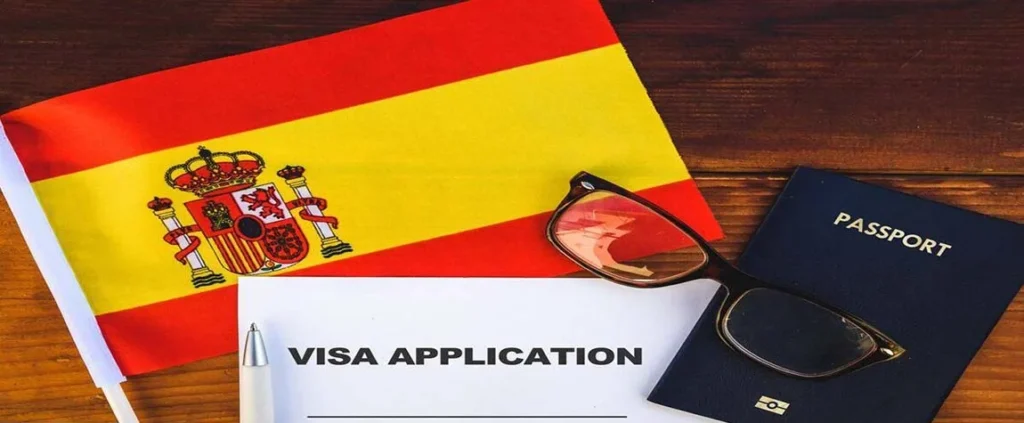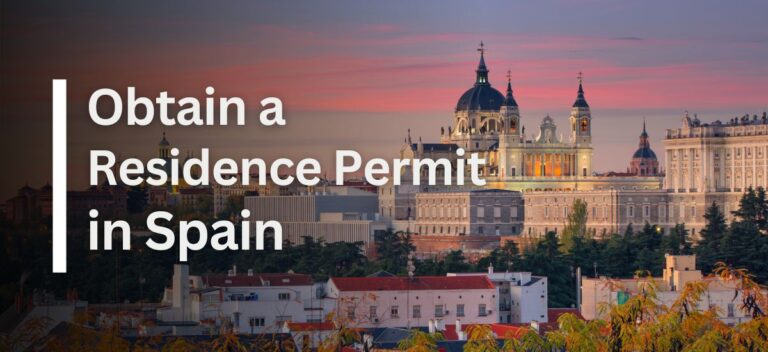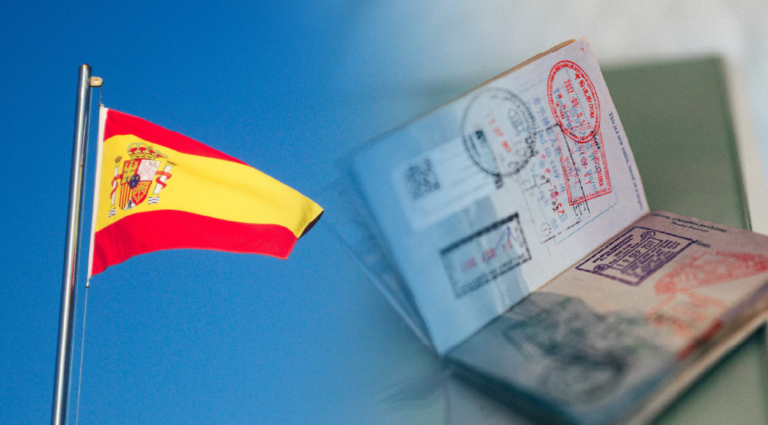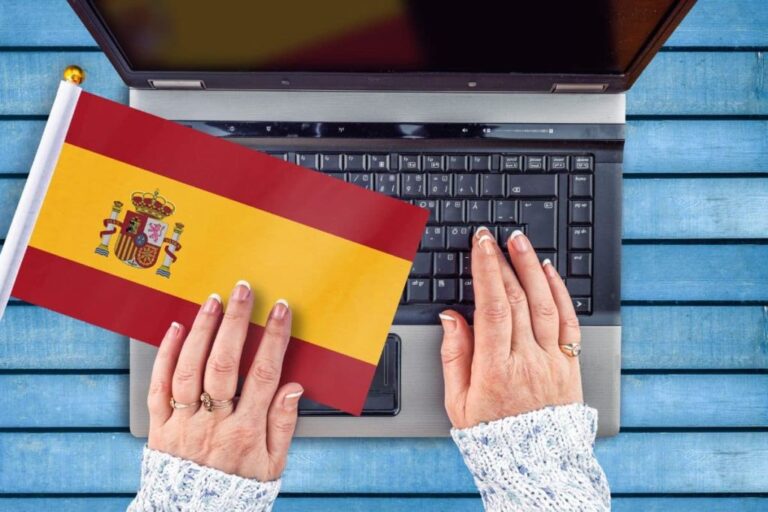How the Spanish Digital Nomad Visa for Non-EU Citizens Opens New Opportunities to Work from Spain?
The Spanish Digital Nomad Visa for non-EU citizens has become a popular option for remote workers looking to live and work in one of Europe’s most vibrant and welcoming countries. Whether you’re an entrepreneur, freelancer, or remote employee, Spain offers a golden opportunity to enjoy its rich culture, diverse landscapes, and high quality of life while continuing your professional endeavors from abroad.
What is the Spanish Digital Nomad Visa for Non-EU Citizens?
If you’re a non-EU citizen dreaming of working remotely while exploring Spain’s vibrant culture, the Spanish Digital Nomad Visa might be just what you need. Introduced with the aim of attracting international talent, this visa lets non-EU remote workers live and work in Spain for extended periods. Here’s a closer look at what it entails, broken down to give you a complete picture without drowning in technical jargon.
Purpose of the Spanish Digital Nomad Visa
The Spanish Digital Nomad Visa was introduced to attract remote workers and freelancers from outside the EU, allowing them to legally live and work in Spain. With its breathtaking landscapes, relaxed lifestyle, and rich cultural heritage, Spain is an ideal destination for remote professionals looking for a new backdrop to their work life. This visa provides a legal framework for staying in Spain for an extended period, making it a welcoming option for digital nomads.
Eligibility Requirements for the Visa
To qualify for the Digital Nomad Visa, applicants must meet certain criteria. Primarily, they should be non-EU citizens who work remotely for a company outside of Spain or have freelance clients located abroad. The visa requires proof of a steady income to ensure financial independence during the stay, along with health insurance coverage. Meeting these requirements helps ensure applicants are genuinely independent and prepared to support themselves while living in Spain.
Duration and Renewal Options
The Digital Nomad Visa initially allows a stay of up to one year, with the potential for renewal. After the initial term, applicants can apply to extend their visa if they meet the necessary requirements. With renewals, the total stay can stretch up to three years, providing a stable option for those who wish to make Spain their temporary or semi-permanent home while working remotely.
Application Process for the Digital Nomad Visa
Applying for this visa requires gathering documentation, including proof of employment or freelance status, evidence of income, health insurance, and a background check. Applications can be submitted through a Spanish consulate or embassy in the applicant’s home country. Partnering with a knowledgeable team, like the Marfour International Law Firm, can help smooth out this process, guiding applicants through each step and ensuring their documents are in order to meet Spanish requirements.
What Documents Are Needed for Spain Remote Visa Non-EU?
Applying for the Spain Digital Nomad Visa as a non-EU citizen involves submitting several essential documents to prove your eligibility and ensure a smooth approval process. Each document serves a specific purpose in demonstrating your status as a remote worker or freelancer and ensuring that you meet Spain’s requirements for living and working in the country. Here’s a detailed breakdown of the key documents you will need for the visa application.

Proof of Employment or Freelance Work
One of the primary requirements is showing that you are employed by a company outside of Spain or are self-employed with clients based abroad. For employees, this means providing a letter from your employer confirming that you can work remotely and that your position is permanent or long-term. If you are a freelancer, you’ll need to submit contracts with international clients and other evidence of your freelance status. This helps demonstrate that your job is not tied to Spain’s job market and that you can support yourself remotely.
Evidence of Sufficient Income
To prove that you can financially sustain yourself while living in Spain, you will need to show evidence of sufficient income. This generally means demonstrating that your income meets the minimum requirement set by the Spanish authorities, which is typically higher than the average local salary. Documents such as pay stubs, bank statements, tax returns, or freelance payment contracts can serve as proof of your income. You may also be asked to show that you can continue earning remotely while residing in Spain.
Health Insurance Coverage
As a visa applicant, you will need to provide proof of valid health insurance. This insurance must cover medical expenses in Spain and be recognized by Spanish authorities. You can either submit private health insurance policies or prove that you are covered under a global health insurance plan that meets Spanish standards. Without this, your application may be rejected, as healthcare coverage is a mandatory requirement for all visa applicants.
Proof of Identity
A valid passport is required to apply for the Digital Nomad Visa. Make sure your passport is up to date with at least six months of validity beyond your intended stay in Spain. In addition to your passport, you may need to provide recent passport-sized photographs that meet Spanish visa photo requirements.
Background Check
A background check is typically required to ensure that you do not have any criminal record. You will need to provide a police certificate from your home country, stating that you have no prior convictions. This document helps assure the Spanish authorities that you pose no risk to public safety.
Application Form and Visa Fee
Along with all the supporting documents, you will need to fill out the official Spain Digital Nomad Visa application form. This form asks for your personal details, visa type, and other relevant information. There is also a visa application fee, which can vary depending on the consulate or embassy you apply through. Make sure to check the specific fee requirements and include the correct amount when submitting your application.
Additional Documents
Depending on your specific situation, you may be required to provide additional documents. For example, if you plan to bring family members with you, you will need to submit proof of relationship, such as marriage certificates or birth certificates for children. These documents will help determine the type of visa or permit you need.
Legal Assistance from Marfour International Law Firm
The application process for the Spain Digital Nomad Visa can be complex, especially when it comes to organizing the necessary paperwork. With so many requirements, it can be easy to overlook a critical document or make a mistake in the application process. Seeking the help of legal professionals, such as Marfour International Law Firm, can make the process smoother and more efficient, ensuring that all documents are correctly submitted, giving you a higher chance of a successful application.
How to Apply for the Spain Nomad Visa Eligibility Non-EU?
Applying for the Spain Nomad Visa as a non-EU citizen is a step-by-step process that requires careful preparation and attention to detail. This visa allows remote workers and freelancers to live and work in Spain for up to one year, with the possibility of renewing it for up to three years. Here’s a simple guide on how to apply, the eligibility requirements you must meet, and the steps involved.

1: Check Your Eligibility
Before applying for the Spain Nomad Visa, it’s essential to make sure you meet the eligibility criteria. The primary requirements include:
- Remote Employment or Freelance Work: You must work for a company or have clients located outside Spain. Your work must be entirely remote, meaning you should not rely on the Spanish labor market.
- Proof of Income: You need to show that you have enough income to support yourself during your stay in Spain. Typically, the minimum required income is set at a higher threshold than the local salary in Spain, so you’ll need to prove your earnings through documents like bank statements, contracts, or pay stubs.
- Health Insurance: You must have health insurance that covers you in Spain. Either a private health insurance plan or international coverage that meets Spanish standards will be acceptable.
- Clean Criminal Record: You need to provide a police clearance certificate from your home country to ensure you have no prior criminal convictions.
2: Gather All Required Documents
Once you’ve confirmed your eligibility, the next step is gathering all the necessary documents for your application. These typically include:
- Proof of remote employment or freelancing: Employment letters, contracts, or client invoices.
- Income proof: Bank statements, pay stubs, or tax returns demonstrating that you meet the income requirements.
- Health insurance: A certificate from your insurer confirming that you’re covered for medical services in Spain.
- Valid passport: Your passport should be valid for at least six months beyond the intended length of stay in Spain.
- Completed application form: The official application form that you can obtain from the Spanish consulate or embassy.
3: Submit Your Application
After gathering the necessary documents, you can submit your application. Applications for the Spain Nomad Visa must be submitted at a Spanish consulate or embassy in your home country. In some cases, you may be able to apply online, but it’s always best to check with the consulate for up-to-date information on the process.
In addition to submitting the documents, you’ll need to pay a visa application fee. The fee varies depending on the consulate, so be sure to confirm the exact amount beforehand.
4: Wait for Approval
Once your application is submitted, the Spanish authorities will process it, which can take several weeks to a few months. During this time, they may ask for additional documents or clarification, so it’s important to stay in touch with the consulate. Be patient and make sure to check your email regularly for any updates.
5: Receive Your Visa and Move to Spain
If your application is approved, you’ll receive your Spain Nomad Visa, allowing you to move to Spain and start working remotely. Once in Spain, you may be required to register with local authorities, such as the police, within a few weeks of arrival.
6: Renewing Your Visa
The initial Spain Nomad Visa is valid for one year. However, if you meet the eligibility requirements, you can apply for renewal. The total duration of your stay in Spain on this visa can be extended up to 3 years. Be sure to keep up with any necessary paperwork and renew your visa before it expires to avoid any issues.
What Are the Benefits of Spain Nomad Visa for Non-EU Citizens?
The Spain Nomad Visa is a fantastic opportunity for remote workers and freelancers outside the EU who are looking to experience life in one of Europe’s most attractive destinations while continuing their professional work. This visa offers a wide range of benefits that make it a desirable option for non-EU citizens. From the ease of living in a vibrant country to the chance to explore Europe, here’s a look at the advantages that come with the Spain Nomad Visa.

Live and Work in Spain
The most obvious benefit is the ability to live and work legally in Spain. The visa allows remote workers to enjoy the Spanish lifestyle, from the Mediterranean beaches to the bustling cities and scenic countryside. As a non-EU citizen, securing this visa means you can stay in Spain for up to one year, with the potential to extend it for up to three years. This opens up new possibilities for work-life balance in a country known for its relaxed pace and high quality of life.
Work Remotely from a European Hub
For digital nomads, the ability to work from a new location is one of the greatest perks of the Spain Nomad Visa. Spain is an ideal base for remote work due to its excellent internet infrastructure and the fact that it’s well connected to the rest of Europe. You’ll have access to a thriving community of like-minded professionals and entrepreneurs, and the country’s diverse regions offer a variety of living environments, from the cosmopolitan buzz of Madrid and Barcelona to the tranquil charm of smaller towns.
Access to the Schengen Area
One of the unique advantages of living in Spain is the ability to travel freely within the Schengen Area. Spain is a member of the Schengen Zone, which includes 26 European countries. With the Spain Nomad Visa, you can explore neighboring countries for short stays, making it easier to experience more of Europe during your time in Spain. Whether you’re looking to explore art and culture in Italy, relax on the beaches of Greece, or visit historic landmarks in France, the Schengen Area is at your fingertips.
Tax Benefits and Financial Flexibility
Spain offers relatively favorable tax conditions for remote workers. With the Spain Nomad Visa, remote workers who earn income from foreign sources may qualify for certain tax breaks, especially under Spain’s tax residency program. This can be a great way to reduce your tax burden while still enjoying the perks of living in a beautiful country. It’s important to consult with a tax advisor or a legal expert like Marfour International Law Firm to understand how Spain’s tax policies apply to your specific situation.
A High Quality of Life
Spain is renowned for its high quality of life, which includes a great climate, excellent healthcare, world-class cuisine, and a laid-back lifestyle. The Spanish way of life places importance on enjoying each day, with a focus on social gatherings, outdoor activities, and spending time with family and friends. For digital nomads, this balance between work and personal life can be incredibly appealing, providing an opportunity to not only be productive but also to recharge and enjoy a fulfilling life in a beautiful environment.
Build Connections and Network
Spain has a growing community of digital nomads, entrepreneurs, and freelancers. By living in the country, you’ll have plenty of opportunities to network with fellow remote workers and professionals, attend events and meetups, and connect with potential clients or collaborators. This can open doors to new business opportunities, partnerships, and even friendships, enriching both your professional and personal life.
Support for Family Members
If you’re planning to bring your family along, the Spain Nomad Visa can extend to your spouse and children. This makes it a great option for digital nomads who want to live abroad with their loved ones. While the visa is primarily designed for remote workers, the family extension option allows you to enjoy your time in Spain as a family, experiencing everything the country has to offer together.
FAQs
Can I bring my family with me to Spain on a Digital Nomad Visa?
Yes, you can bring your spouse and children with you to Spain under the Digital Nomad Visa, as long as you can financially support them.
How long does the Spanish Digital Nomad Visa for non-EU citizens last?
The visa is initially granted for one year but can be extended for up to three years.
Can I apply for a job in Spain while on the Digital Nomad Visa?
No, the visa is designed specifically for those working remotely for companies outside Spain. If you wish to work for a Spanish employer, you would need to apply for a different visa.
Is the Spanish Digital Nomad Visa for non-EU citizens renewable?
Yes, the Spanish Digital Nomad Visa can be renewed, typically for an additional two years, and after three years, you may be eligible to apply for permanent residency.
Conclusion
The Spanish Digital Nomad Visa for non-EU citizens offers a fantastic opportunity for remote workers to live and work in Spain legally while enjoying all the perks that come with being in this European gem. From tax advantages to high quality of life, Spain is undoubtedly one of the best places for digital nomads looking to balance work and leisure.
For more detailed guidance on the application process, you can consult experts like the Marfour International Law Firm here, who can help make your dream of working remotely in Spain a reality. With the Spanish Digital Nomad Visa, non-EU citizens can turn their remote work lifestyle into a full-time adventure, surrounded by the culture, climate, and convenience Spain has to offer.






